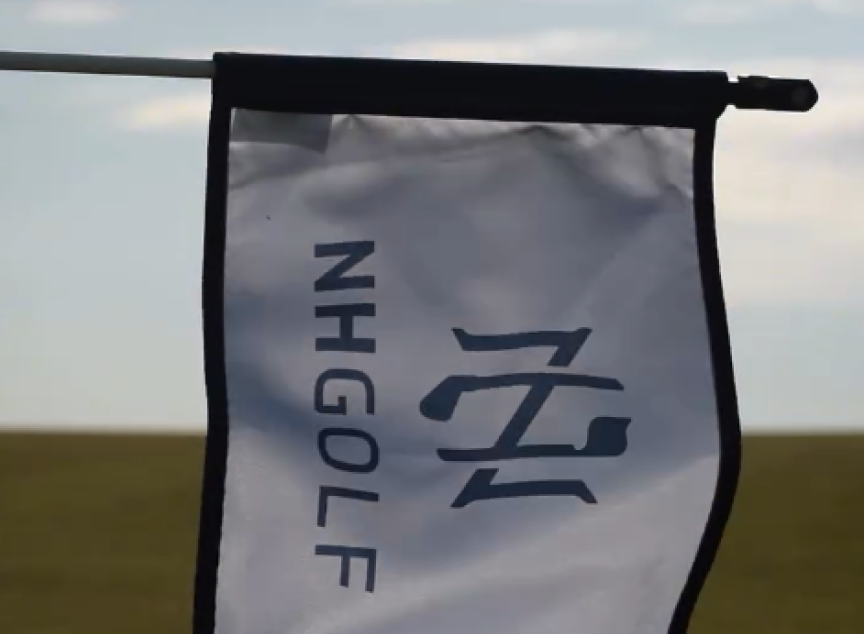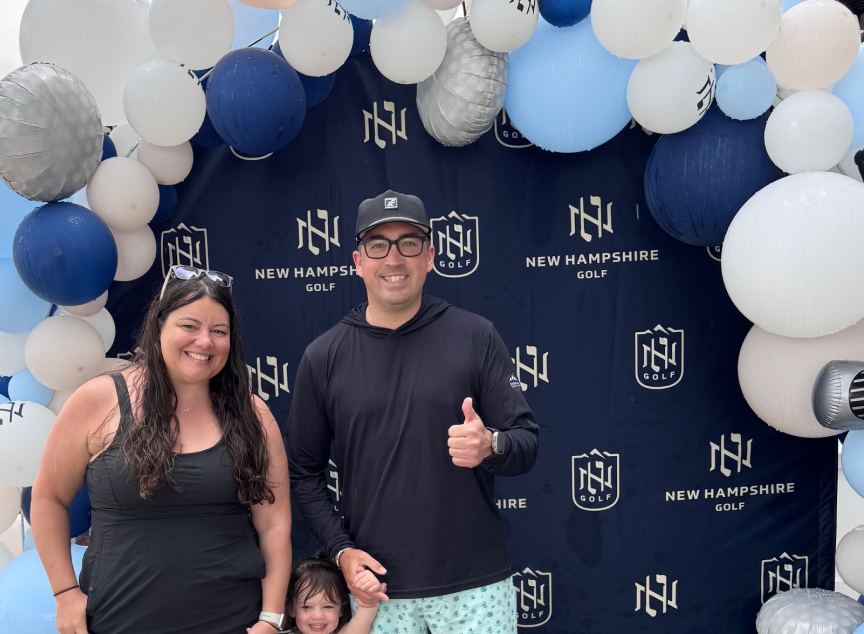For over a century, the New Hampshire Golf Association (NHGA) played one role: govern competitive golf in the state. Think rules, ratings, handicaps, and championships. They did it well. But like many legacy orgs, they were stuck in the script—talking to insiders while the game evolved around them.
Off the course, golf was exploding—indoor simulators, younger players, more women, more diversity, more energy. But NHGA wasn’t speaking to any of that. The brand leaned rigid, official, exclusionary. The mandate from their team? Make it modern. Make it matter.

We didn’t just update a logo. We overhauled the brand from the inside out. Through qualitative interviews across players, clubs, retailers, and leadership, we surfaced one hard truth: NHGA was not seen the way they wanted to be seen. The fix wasn’t cosmetic. It was cultural.
This brand needed to stop broadcasting to the elite and start building a community. A place where golfers—serious or social, traditional or tech-savvy—could feel welcome, seen, and supported.
We renamed the organization NH Golf, built a brand and messaging architecture around play more / belong more, and aligned membership, programming, and sponsorship strategy to meet golfers where they actually live—on the course, online, at events, and in emerging casual formats.
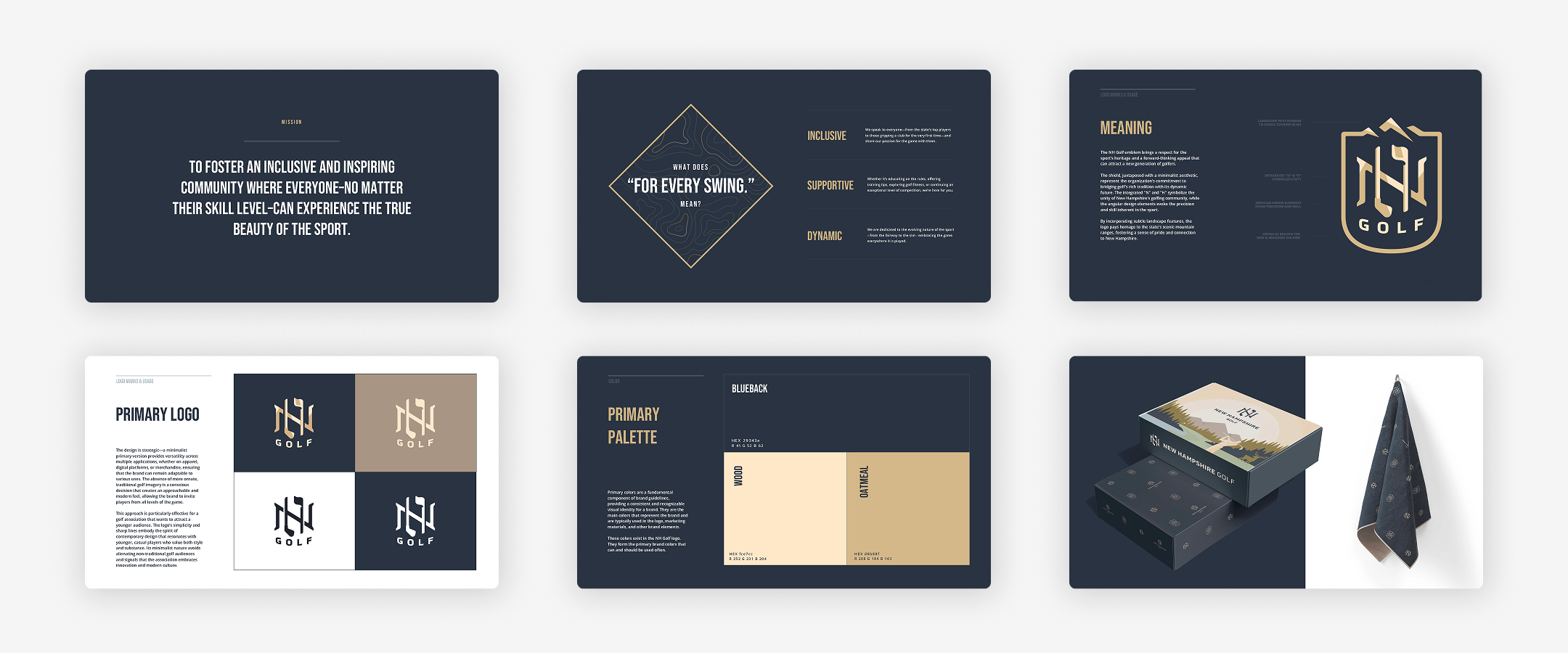
We started with questions, not assumptions. Why did the NHGA feel outdated? Why were casual players sitting on the sidelines? Why did a sport built on connection feel so closed off?
Through deep stakeholder interviews, one thing became clear: the NHGA had heart, heritage, and purpose—but it was hiding behind tradition. Most people saw it as an old boys’ club, obsessed with rules and rankings. The reality was far more interesting. This was a team ready to embrace the evolution of golf—they just didn’t have the words, visuals, or voice to prove it.
So we gave them one.
We built a brand that could flex: serious when it needed to be, but fun where it mattered most. We honored the NHGA’s roots—its role in governing handicaps, competitions, and course ratings—while planting a flag for a bigger, more inclusive future. One where anyone with a love for the game could find a place.
We shifted the focus from who you know to how you play, from exclusivity to community, from tradition to transformation. Programs were reimagined to be more accessible. Language got human. The brand personality became less old school, more Shane Lowry—charismatic, confident, and connected to real people.
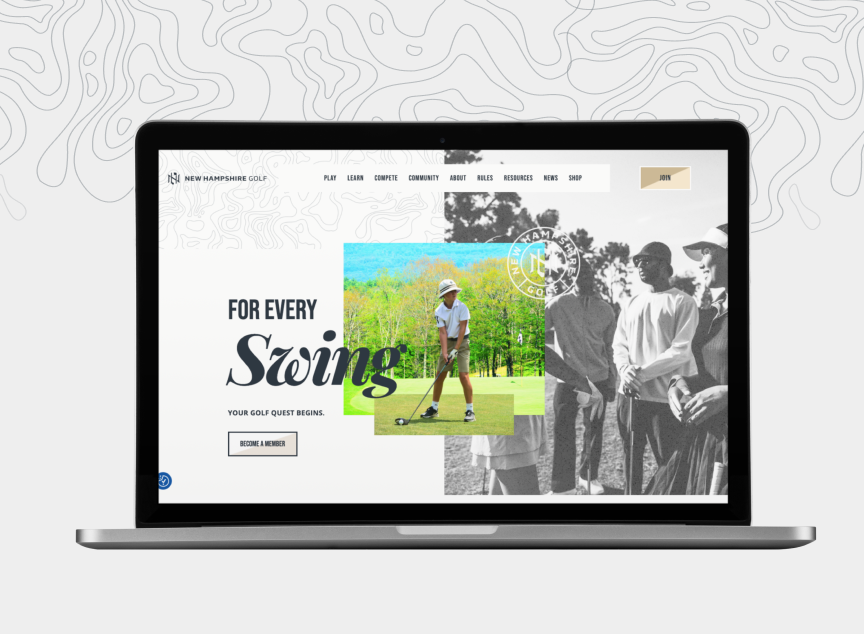
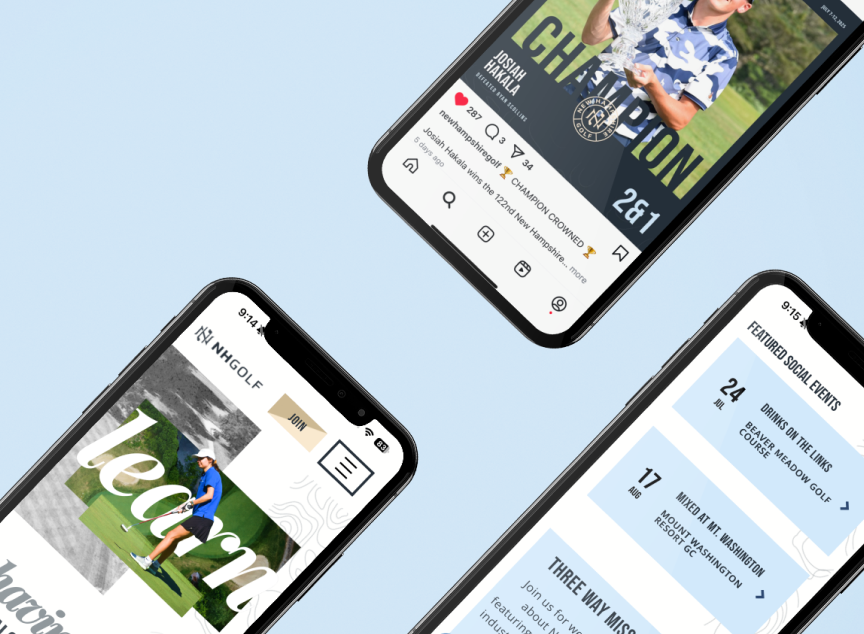
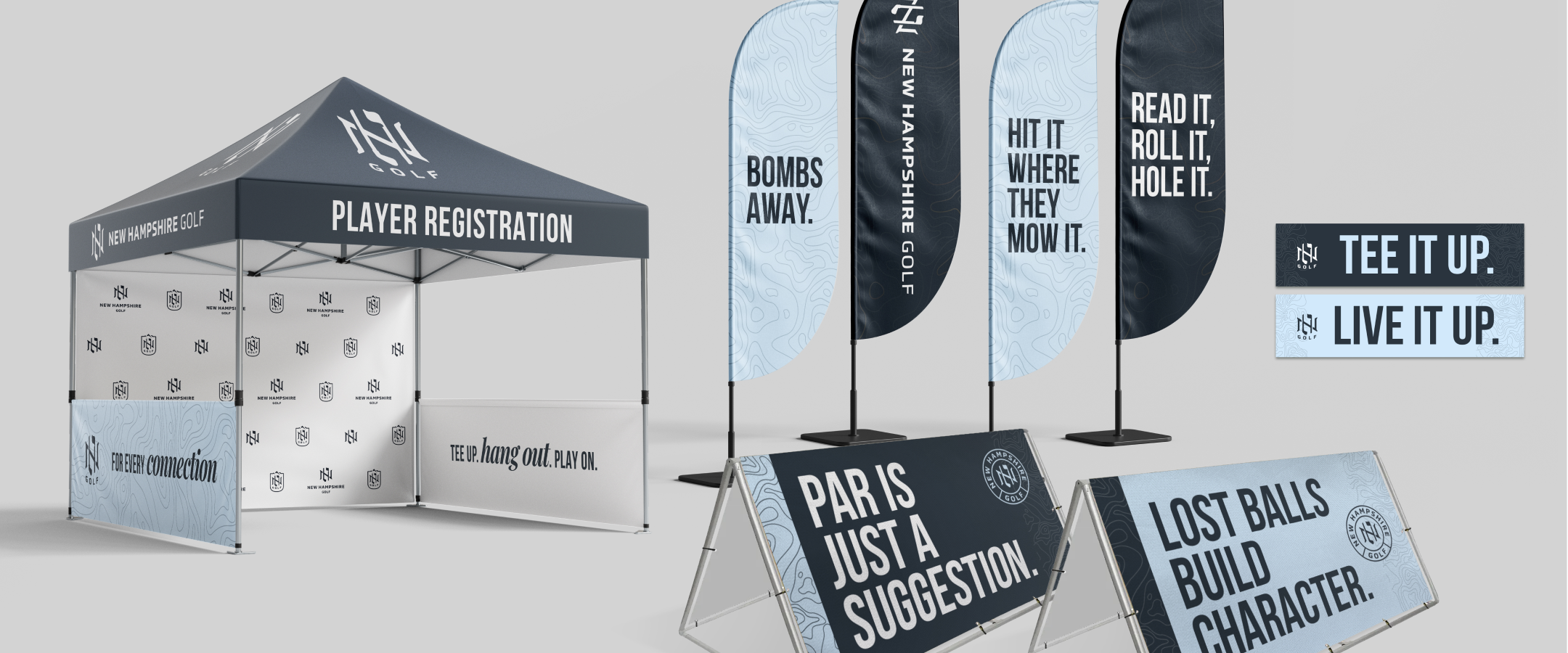
What started as a governance-first, “for-members-only” association is now positioned as New Hampshire’s most vibrant, multi-dimensional golf community. The language now reflects the lifestyles of modern golfers. The visual identity is bolder, fresher, more accessible. Engagement is up—both digitally and emotionally.
And critically, the brand has become a conduit for growth, not a gatekeeper. Because we didn’t just change how NHGA looks—we changed how it feels. And feelings drive action.
